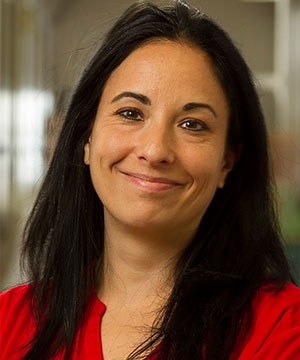Awareness is not enough: AMR under an anthropologist’s lens

How do we choose whether to follow a doctor’s advice? Dr. Ève Dubé, a visiting professor in the Department of Anthropology at Université Laval, has always been curious about people’s contradictory relationship to medical advice. She found behavior in two health crises, COVID-19 and antimicrobial resistance (AMR), to be instructive of how complex those choices are. Decisions about antibiotic use and vaccine uptake involve not only evidence-based medical information, but also engage our social norms, values, and emotions and rely on the relationship between a health care provider and their patient.
Dr. Dubé is currently working on a project investigating the context of our decision making around AMR and vaccines. “What we have noticed is that most people have some kind of idea of what AMR is, but it’s imperfect and there are differences in context in whether you want antibiotics or not. For instance, if you are a parent with sick children and you need to go to work, you might see a quick dose of antibiotics as a solution to your immediate need. The physician might see your stress, and prescribe those antibiotics; consultation time is limited, and it’s fast to prescribe what you are asking for.” She continues, “It’s kind of the reverse for vaccines. When people do not see themselves at risk, they think they do not need the vaccine.” Supported by CIHR, Dr. Dubé’s research focuses on understanding what the different layers of knowledge, attitudes and beliefs are that influence those decisions. She adds, “but I’m also interested in the system—how do we build a culture and social norms around these issues, how does what people around us say and think influence our own behavior?”
Dr. Dubé notes that a lot of people do not perceive AMR as a big problem in Canada and that to change that, we must start with education. “I’m a strong believer in talking to children about health and science.” She continues: “We need to work at the individual level, the patient and provider level, the organizational level and the social, cultural and community level. We need interventions that address all those layers to be effective. And it can be done.”
Dr. Dubé believes in the power of collaboration: “I think having more interdisciplinary collaboration, working together, bringing social scientists along with other scientists would be great. We need to have the four pillars (Ethical Considerations About Health Research - CIHR (cihr-irsc.gc.ca)) thinking and working on it together to have better solutions.”
- Date modified: